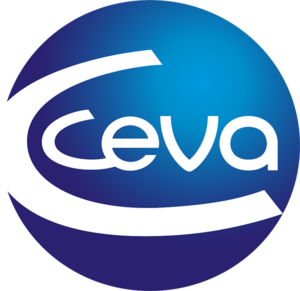Scout Bio Successfully Completes Pilot Clinical Study of SB-001, A Single-Injection AAV Gene Therapy for the Treatment of Feline CKD-Associated Anemia
PHILADELPHIA, September 9, 2021 — Scout Bio today announced the successful completion of a CKD-associated anemia study in client owned cats treated with SB-001, an AAV expressing feline erythropoietin (fEPO). The study demonstrated a prolonged therapeutic effect with statistically significant increases in red blood cells after a single injection. SB-001 is the first gene therapy to successfully treat feline patients with an acquired non-monogenic disease. These results pave the way for Scout Bio’s portfolio of AAV delivered therapeutic proteins for companion animal diseases.
Clinical Study Highlights:
- Studies compared the change in Packed Cell Volume (PCV), an indicator of increased hematocrit or red blood cell number, from baseline in twenty-three client owned cats with kidney disease;
- All cats received therapy and success was defined as an increase in PCV into the normal range or ≥5 percentage points above their pre-treatment PCV;
- A single dose has now been selected that significantly increased PCV (p<0.05), 87% of cats met success criteria by showing clinically relevant increases in PCV;
- A study published by Boyd in 2008 determined that 95% of Stage 4 CKD cats will die by 99 days after diagnosis. In the Scout Bio study, 44% of treated Stage 4 cats lived longer than 99 days, with one cat living to 339 days post-treatment;
- The single injection AAV treatment is expected to last the rest of the cat’s life, therefore offering a significant compliance and convenience advantage over current intervention (i.e., off-label human EPO or blood transfusions) or future approaches; and
- No immune response to fEPO was observed with SB-001 treatment in any feline patient. In contrast, off-label use of human drugs in cats is reported to carry a high risk of a life-threatening immune reaction to the drug.
“In this study we have successfully shown that SB-001 has the ability to increase PCV into the normal range, thereby reducing or eliminating the clinical effects of anemia associated with CKD.” said Mark Heffernan, Ph.D., CEO of Scout Bio. “These exciting results reinforce the potential for Scout Bio’s gene therapy platform to advance treatments for other acquired chronic diseases such as diabetes, chronic pain and atopic dermatitis.”
There are no FDA-approved treatments available for CKD-associated anemia in cats. The single injection treatment of SB-001 presents an enormous advantage in convenience, improved compliance, and potentially allows owners more quality time with their pets. “A new option for cats with kidney disease and anemia is urgently needed. These cats come into the veterinary clinic with weakness, lethargy, breathing difficulties, and overall feeling very unwell. SB-001’s ability to increase the PCV can make a huge difference for many of these cats that would otherwise face euthanasia,” said Anne Traas, DVM, MS, DACT, Chief Development Officer for Scout Bio and head of the clinical team leading the study. “It was very rewarding to hear from owners participating in the study, who expressed their deep gratitude for the additional time SB-001 was able to provide their beloved pets.”
James M. Wilson, MD, PhD, Director of the Gene Therapy Program at the University of Pennsylvania and a co-founder of Scout Bio, commented, “Scout Bio’s focus in companion animals with chronic diseases has resulted in this successful demonstration that AAV gene therapy can be an effective alternative to frequent injections with therapeutic proteins and result in the improvement of feline patient lives. These results provide validation that Scout Bio’s platform can be used to successfully deliver therapeutic proteins to treat chronic diseases in companion animals.”
Scout Bio intends to progress key manufacturing activities and safety studies that will be necessary to apply for Expanded Conditional Approval under FDA guidelines.
About SB-001
SB-001 has a unique and innovative adeno-associated viral (AAV) vector, containing the gene for feline EPO, for delivery into the muscle cell nucleus which will continually produce therapeutic levels of the hormone. The expressed feline EPO stimulates erythropoiesis, or red blood cell production. The U.S. Food and Drug Administration (FDA) CVM has confirmed that SB-001 is eligible for Expanded Conditional Approval, potentially shortening the time until this product could be approved and made available.
About Chronic Kidney Disease (CKD)-Associated Anemia
Anemia associated with chronic kidney disease (CKD) in cats is a disease of high unmet medical need, with no FDA-approved therapies currently available. CKD is one of the most common diseases in senior cats and is an end-of-life disease that creates quality of life issues for cats and their owners. Up to 21% of cats with CKD have anemia and the only currently available therapeutic options are multiple blood transfusions or repeated injections of off-label human drugs. Compared to the off-label use of human EPO drugs, SB-001 is expected to have a superior safety profile with respect to immune reactions and incidence of pure red cell aplasia (PRCA), a serious life-threatening condition.
About Scout Bio
Scout Bio is a biotechnology company revolutionizing pet medicine by delivering a pipeline of one-time gene therapies for major chronic pet health conditions. Scout Bio’s therapeutics are designed to induce long-term expression of therapeutic proteins in pet patients using AAV vector technology. Scout Bio has a research and development collaboration with the University of Pennsylvania’s Gene Therapy Program, a leader in the field of genetic medicine research. Scout Bio is a private company headquartered in Philadelphia, Pennsylvania. For more information, see www.scoutbio.co
University of Pennsylvania Financial Disclosure
Dr. Wilson is a Penn faculty member, scientific collaborator, key advisor, and co-founder of Scout Bio. As such, he holds an equity stake in the Company, his laboratory at Penn receives sponsored research funding from Scout Bio, and as an inventor of the licensed technology he may receive additional future financial benefits under licenses granted by Penn to Scout Bio. The University of Pennsylvania also holds equity and licensing interests in Scout Bio.
For further information, please contact:
Fran Gaconnier
Scout Bio
214.417.4142
Fran.gaconnier@scoutbio.co


